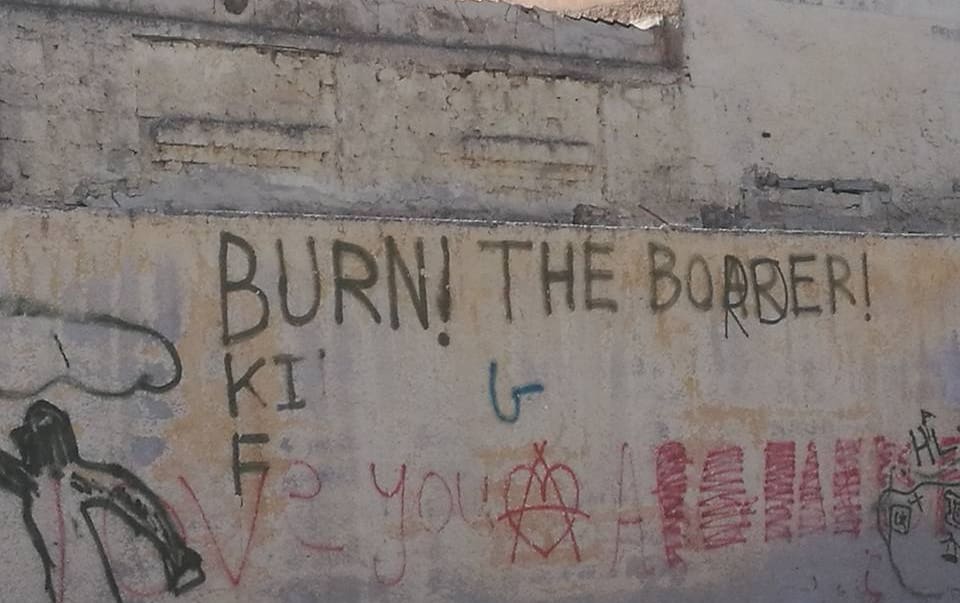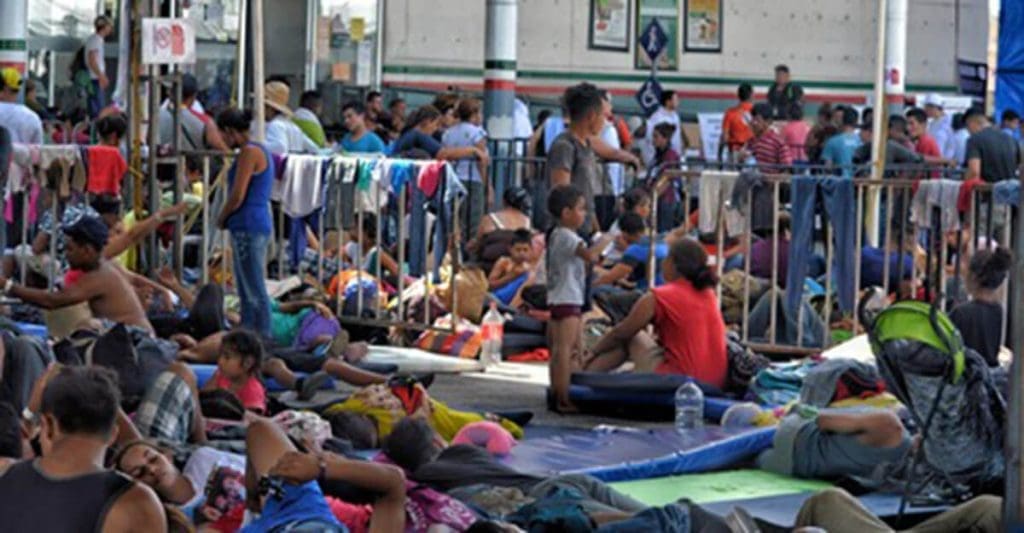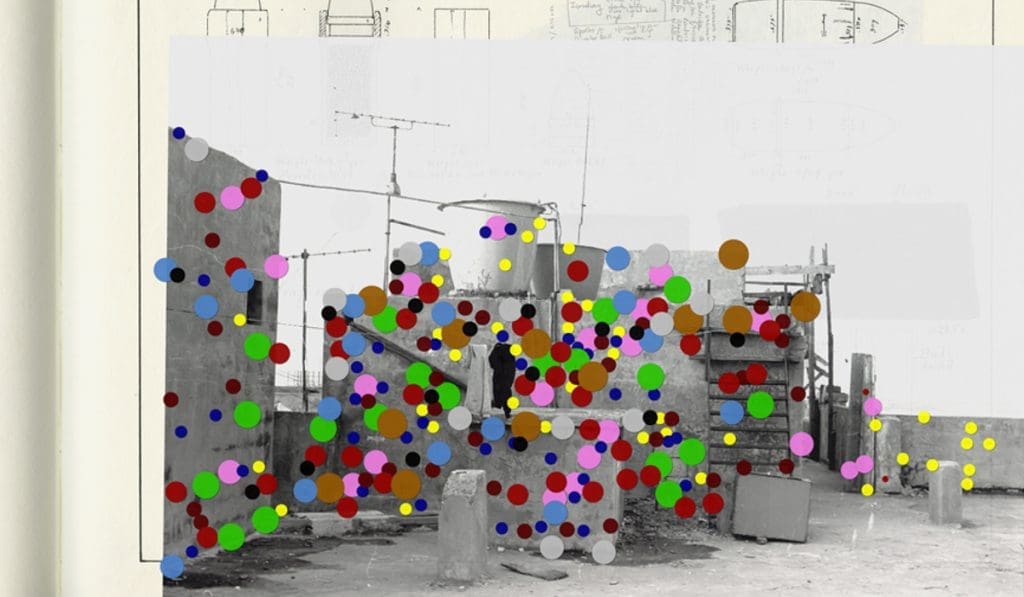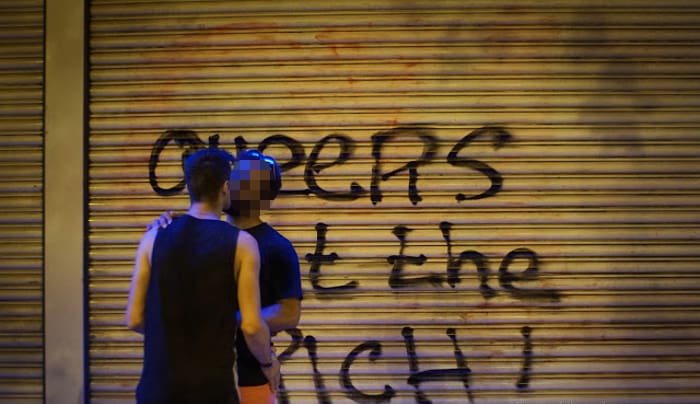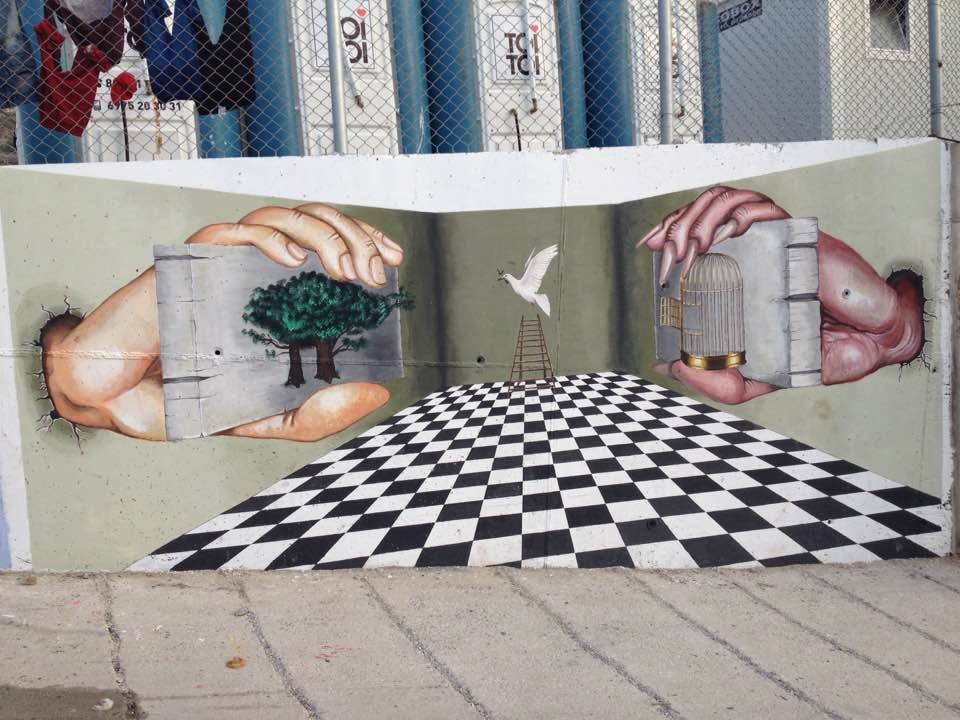Calling Forth a New Internationalist Left
For a new class politics in a time of neoliberal capitalism, rightwing populism, and authoritarian racism
by Ceren Türkmen for ak: analyse und kritik no. 637
17 April 2018 (original post in German)
Antiracists, internationalists, and migrants in Germany are currently grappling with a single central challenge: a new upsurge in racism in the context of a rightwing populist project after (and despite) the exposure of the National Socialist Underground (NSU), the 2015 “summer of migration,” and an ongoing migrants’ struggle dating back to the seventies and spanning generations.
The new upsurge in racism has produced a contradictory situation within authoritarian neoliberalism. Historically, there has never been—at least at the level of activism—as much antiracism in Germany as there is now. And yet we are simultaneously experiencing a weakening of antiracist politics, antiracist critical analysis, and antiracist organizations. Structurally, the tightened restrictions of the revised asylum law (Asylgesetz II) have sown division among various groups of refugees. On the political level, a cultural-political and identity-based fragmentation is taking place within left discourse which divides social struggles from antiracist and feminist identity struggles. Contributions to this fractious discourse which, now as ever, do not acknowledge that antiracist struggles must be encompassed within social and class struggles as a broadening and internationalizing dynamic are a drag on the historical struggles and knowledge production of migrants and internationalists, and indeed imperil existing campaigns and accomplishments of the left.
Successful organizing from below
In their struggles and discussions over recent years, some campaigns in particular have been making concrete demands for a just society—not just for migrants but for everyone. The Tribunal for Unraveling the NSU Complex [Bündnis zur Aufklärung der NSU Morde, an alliance centering the families of the mostly Turkish victims of the NSU serial murders and the migrant communities around them] proposes that living conditions be transformed society-wide, with justice and equality for everyone—an “open society of the many, cultivated through migration.” This alliance purposefully brought those affected by racist murders together with solidary antiracists and has created (with much effort) heterogeneous and transcultural political spaces. In Berlin, the tenants’ union “Kotti & Co” is made up of neighbors of all backgrounds, activists, artists, and culture- and knowledge-producers who have protested together for affordable rents and social housing. The International Women Space is organizing both itself and its political actions around the combined heterogeneous interests and abilities of refugee women, activists, translators, and culturemakers.i
With this movement- and base-oriented approach, these campaigns have together succeeded in advancing popular self-organization from below and creating a broad feminist, municipalist, antiracist, and antifascist politics beyond parties, institutions, and traditional leftwing mass activism.
Standing at odds with this are attempts at a kind of national-social leftwing populism (in the style of Sahra Wagenknecht and many others) which look at the the urgent question of equal rights for migrants within a universal social project and respond primarily with nationalist and ideological objections. The general lack of any social-critical leftwing migration politics in Germany during the “guest worker era” [mid-1950s to mid-1970s] led to a kind of “study the foreigners” mindset in which migrants and refugees appeared only as a categorical problem. A repeat of this is not out of the question, considering the current slide rightward along with a fragmented left that seems unwilling to orient itself towards a solidary project to confront racism. This weakens the left as a whole, since, as Keeanga-Yamahtta Taylor puts it, racism is a vehicle for the “flattening of class contradictions among whites.”
It only captures half the truth when traditional leftists, channeling Didier Eribon, claim that a loss of class consciousness, alongside and as part of the neoliberal redistribution of wealth upwards, has resulted in “globalization’s losers” lurching rightwards. With a view towards migration and the countless social struggles against borders, exploitation, and dispossession, I wish to propose a counter to this narrative: neoliberalism is also experiencing a “crisis of legitimacy” within migrant communities and the migrant segments of the class. But these folks, experiencing multiple forms of discrimination, are decrying not only having been thrust by neoliberalism into structural, long term precarity, but also decrying the racism endemic to society. A leftwing politics that excludes their perspectives is not a popular politics—nevermind an internationalist politics.
A new class politics // Racism and migration
To achieve this new class politics will mean dissolving the artificial dualism between identity politics and class politics. It is not sufficient within international debates simply to repeat the abstract and morally well-meaning observation that “the new class politics must be intersectional.” Even in this declaration of intent there lies the danger of falling backwards into fundamentally contradictory thinking, as long as migration and racism are understood only as processes of class division and not as a structural component of how class is politically de- and re-constituted. This means that the struggles at the border for inclusion and social rights, and the struggles against the camps and against nativist supremacy, must all be understood as class struggles within a new left social project.
Class dynamics are not reducible to a dualism between labor and capital, because classes, as social relations, interact both vertically and horizontally. Mechanisms of oppression like sexism and racism pervade class relations, and their manifestations are embedded within it. Therefore, no liberatory, internationalist class movement can grow out of a compartmentalized, “objective” class analysis. Ultimately, migrant and precarious class subjects are interested in antiracist campaigns and engage with them because they, as migrants, are exposed to additional specific processes of exploitation and dispossession.
By the same token, other class subjects might gravitate towards nationalistic class projects because they want to differentiate and separate themselves from racialized segments of the class. The conundrum between class as a structure, on the one hand, and social struggles as dynamic learning processes whose political development must happen collectively, on the other, is a political one as well as a cultural one. Class politics and antiracist identity politics do not stand in contradiction, as it is so eagerly assumed amid all the lively debate; class politics are rather the outcome of a collective negotiation of identity and culture.
Class relations and global division of labor
What does all this mean with regard to global migration? Class formation and division of labor, globally, have happened within a framework of colonialism in every historical phase of capitalism. Likewise, the migration of people around the planet has happened historically, and is happening currently, against a backdrop of global, (post)colonial, war-based capitalism. The crisis precipitated by the 2015 “summer of migration” is bound up in this historical circumstance. “We’re here because you were there!” is an oft-heard chant at protests around migration politics. Migrants protesting at the borders of Fortress Europe are demanding not only freedom of movement but also civil rights and the right to be able to live, as human beings, in peace. When migrants demand their political and social rights, they are challenging the connection of political parties and unions to the nation-state. The racialization of the global commodity labor force has always been a part of modern class conflict under capitalism. Stuart Hall speaks of racism as the animus that, on the abstract level of capital, sets the whole “class” in motion. To paraphrase from what little of his selected writings are available in German: racism is one of the mediums through which white sections of the class experience their relations to other sections of the class, and therefore to capital itself. The ideological class war is most effective when it articulates the internal contradictions of class experience with racism and thus makes the the ruled-over classes useful to capital.ii
In a new historiographic work,iii Satnam Virdee sheds light on the internationalist history of socialist struggles and shows that antiracist and internationalist political projects have always been a part of class struggles and class organizations. It mostly came in the form of “multicultural struggles” that oriented themselves against nationalism, “racialization,” and the binding of whole swathes of the class to nation, empire, and whiteness. For migrants and their autonomous struggles, the factor of “race” is a social relationship through which “class experience” is made. Not the other way around. This is what the left has always emphasized far too little.
An internationalist leftwing counternarrative must take this as its starting point, and take the organized structures of specifically racist oppression and exploitation not as a sidebar but as central.
Precisely these same experiences through the the 1980s caused Marxist antiracists and migrants to take leave of socialist politics. Instead, they went about developing the traditions that are disparaged today as identity politics. At the same time, the antiracist struggles and organizations of the eighties and nineties were expansions of the class terrain from a migrant perspective and were vitally necessary to resist racist repression, structural exclusion, and racist violence as well as open up space for migrants—their bodies, their biographies, their ways of life—to catch at least a little bit of air.
Translated by Antidote
Notes:
i IWS has been generous with the Antidote Writers Collective, as has the O-Platz movement (Refugee Strike Berlin) from which it sprang. Check out some of their previous work we have featured here and here.
ii The ideas here are our own amateur translation back into English of a direct quote from Stuart Hall: Rassismus und kulturelle Identität: Ausgewählte Schriften 2 (Hamburg: Argument Verlag, 1994 [133]). In a cursory review of Hall’s publicly available work in English, including but not limited to his articles for New Left Review, we could not locate the passage in question. Two new volumes of Hall’s selected writings are apparently due for anglophone publication in 2019.
iii Satnam Virdee: Racism, Class, and the Racialized Outsider. Basingstoke: Palgrave Macmillan, 2014.

